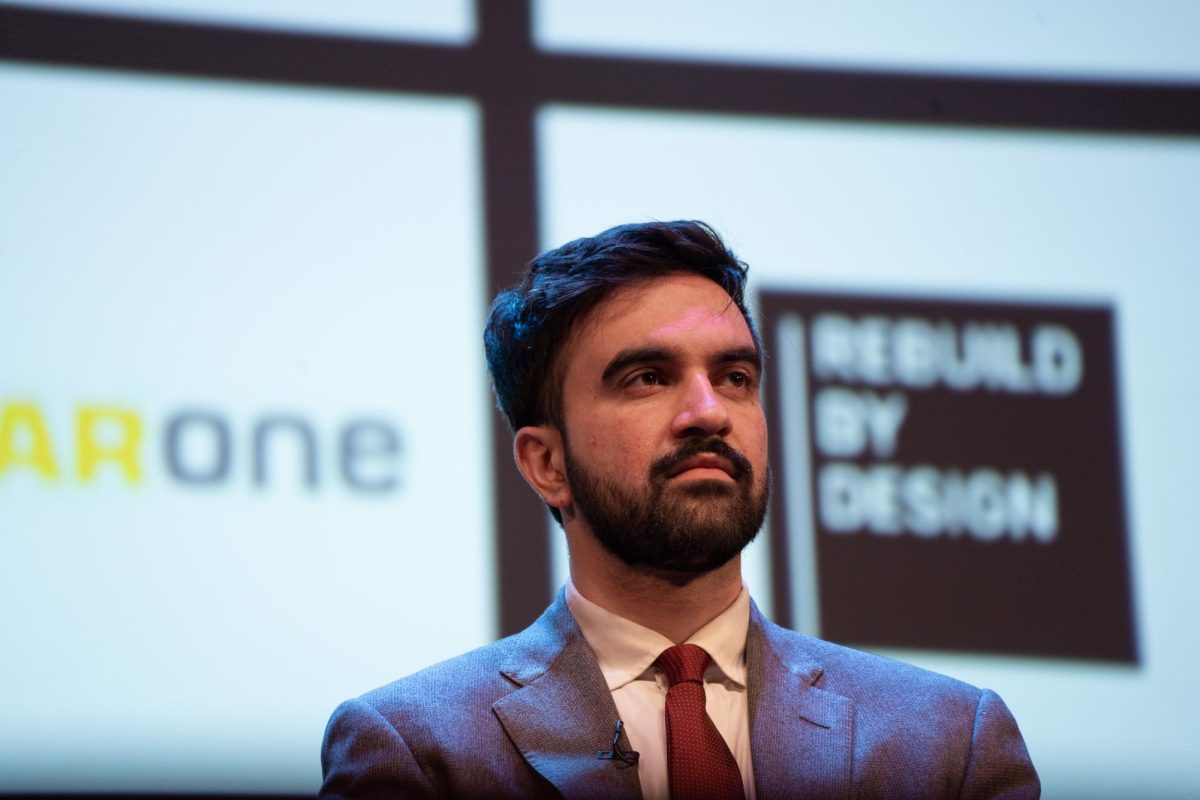A recent WSN op-ed praised Assemblymember Zohran Mamdani as “the progressive leader New York City needs,” arguing that the city’s Democratic leaders have abandoned their working-class constituents by adopting centrist policies. However, Mamdani’s agenda would result in diminished opportunities for the working class and less affordable housing in the long run.
Greenwich Village has long been a bastion of progressivism, which is understandably reflected in Mamdani’s appeal to many students who have moved to New York City. But the residents of Greenwich Village, by and large, do not reflect the rest of the city’s interests. According to a March 2025 Manhattan Institute survey, most New Yorkers, including nearly 70% of Democrats, support increasing police presence. That number jumps to 85% when it comes to deploying more police officers in the subway system.
Mamdani’s first and foremost policy position is to lower the cost of living for working-class New Yorkers — undeniably the top concern for most of the city’s residents. His plan to do so involves making MTA buses free of charge, freezing rent on rent-stabilized apartments and creating city-owned grocery stores. This proposal will hurt small landlords and discourage long-term investment and upkeep — both at the individual level and across the broader New York City housing market. While a rent freeze may help some tenants, it will hit mom-and-pop landlords the hardest. Unlike large real estate firms or corporate developers, small landlords typically own up to five family-run properties without outside hired management, depending on rental income for their mortgages and living expenses.
Beyond that, rent freezes discourage property maintenance. Cities that institute rent control across the board — like a rent freeze — can reduce the incentive for property owners to reinvest in their buildings. Over time, this will lead to a decline in housing quality, especially in older buildings that are more often rent-stabilized. Mamdani’s proposed rent freezes, which do not account for the natural rate of inflation, would trigger a similar crisis of worsening housing quality in New York City.
Mamdani’s platform also proposes a citywide $30 per hour minimum wage. This minimum wage plan, contrary to reducing living costs, is bound to backfire. Not only will prices in stores and restaurants skyrocket, but this decision will also lead to mass layoffs in retail businesses. When California raised the fast-food minimum wage to $20, it triggered widespread layoffs, reduced hours for remaining employees and a boom in automating tasks. New York City would likely see the same results, and it would be the everyday workers — cashiers, delivery drivers and baristas — who would lose their jobs.
Mamdani also plans to create a Department of Community Safety equipped with community mental health navigators. These roles, which existing police officers already handle despite being understaffed, require even more tax funding. In New York state, the top 200 taxpayers alone pay nearly 6.3% of all income tax, and millionaires pay 41%. New York has already seen ultra-wealthy individuals and corporations flee to low-tax states like Florida, taking nearly $1 trillion of wealth with them. Raising taxes in New York City will accelerate the exodus of wealthy individuals and corporations, who can relocate. The middle and working classes, lacking this mobility, would bear an increasingly disproportionate tax burden as a result.
The proposed fare-free MTA bus system exemplifies this issue, creating a welfare structure primarily funded by those who cannot afford to leave New York City. Voters clearly want to address crime and mental health crises, and, overall, improve public safety; law enforcement currently possesses the necessary training and resources to effectively manage both issues. Regarding city-owned grocery stores, to state the obvious conclusion, city-owned grocery stores only serve to take away jobs for grocery store owners.
Mamdani’s platform may sound progressive, but in practice, it threatens to eliminate jobs, burden working and middle-class taxpayers, and drive out the high earners who help fund the city’s essential services. His proposals would waste public funds on programs that duplicate the work of an already under-resourced police force — resources that could otherwise go toward making New York safer and more affordable for everyone.
Contact Becky Flanagan at [email protected].
























































































































































